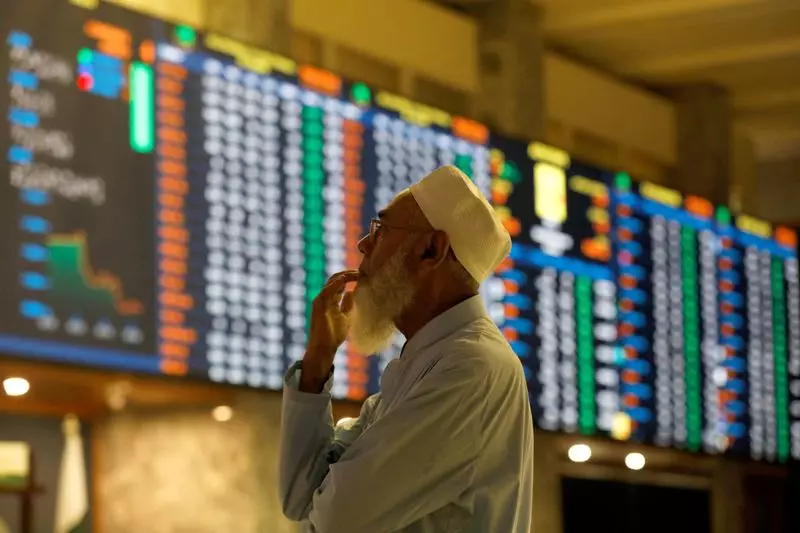Pakistan’s benchmark share index rose by 1.44% to hit a record high after the International Monetary Fund (IMF) and Pakistan reached a staff level agreement (SLA) for a $7 billion, 37-month loan program. This milestone comes after negotiations that began in May and culminated in the agreement. The market has almost doubled since Pakistan signed its last SLA for a $3 billion standby arrangement, signifying the positive impact of the IMF deal on the country’s economy.
Adnan Sheikh, assistant vice president of research at Pak Kuwait Investment Company, expressed optimism about the agreement, stating that the markets are likely to celebrate the SLA. He noted that the agreement was a silent one, without the usual politicization, which is a welcome change. Market experts are now expecting further interest rate cuts by the central bank and anticipate significant inflows of $2-3 billion in the coming month.
The IMF has emphasized that the SLA agreement is subject to approval by its Executive Board and the timely confirmation of necessary financing assurances from Pakistan’s development and bilateral partners. These partners include long-time allies such as Saudi Arabia, the United Arab Emirates, and China, which play a crucial role in providing financial support to Pakistan. The new bailout program aims to stabilize the economy and promote inclusive growth in the country, which has been grappling with economic challenges for decades.
Pakistan has a long history of seeking assistance from the IMF, with 22 bailouts since 1958. The country currently stands as the IMF’s fifth-largest debtor, owing $6.28 billion as of July 11, according to IMF data. The repeated reliance on IMF loans highlights the challenges faced by Pakistan in achieving sustained economic stability and growth. The latest loan agreement signifies a renewed effort to address these challenges and pave the way for a more resilient economy in the future.
The IMF loan agreement represents a crucial step towards strengthening Pakistan’s economy and achieving sustainable growth. While the approval process and conditions attached to the loan will require careful monitoring, the positive response from the market and experts bodes well for the country’s economic outlook. With continued support from international partners and effective implementation of reform measures, Pakistan can overcome its economic challenges and pave the way for a more prosperous future.


Leave a Reply